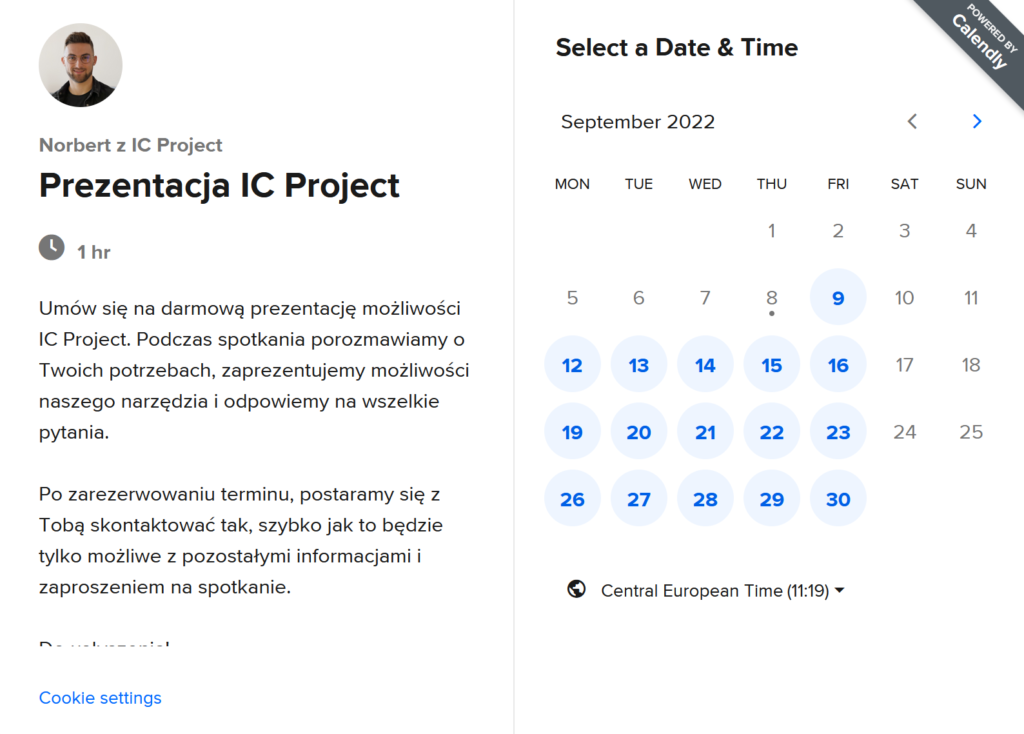When it comes to task management, time tracking is essential to ensure that a project stays on schedule and within budget. That’s where project freelancers can be a big help. By hiring a freelance project manager, you can ensure that someone is keeping an eye on the clock and making sure that every minute is being used effectively. In addition, freelancers are often able to offer more flexible hours than full-time employees, which can be a big advantage when trying to get a project completed quickly. So if you’re looking for someone to help keep your next project on track, consider hiring a freelance project manager.
Cooperation with project freelancers
Trends associated with the flexibility of the labor market and alternative forms of employment are becoming more and more visible throughout the world. The importance of remote teams is also increasing in Poland. While for large corporations, employing external consultants is an everyday reality, many small businesses are still looking at freelancers with reluctance and anxiety. Are they right, though? As it turns out, in many cases, cooperation with project freelancers can be much more effective than creating an additional position for the time of completion of the project, which can last several months. Let’s take a closer look at the most common beliefs that stop people from such cooperation and see if they are justified.
Myth 1: poor work quality
A serious challenge for many entrepreneurs is the lack of trust in the quality of services provided by freelancers. The laidback approach to deadlines and the lack of sufficient competence necessary to complete the task are just some of the concerns that speak against such cooperation. Meanwhile, the large competition in the market for freelancers makes them the most motivated employees. To ensure a constant inflow of new assignments, they need to continuously improve their qualifications, and, thanks to the diversity of completed projects, they often have a broader perspective and can propose effective solutions. Modern technologies can help in maintaining control over quality. Thanks to such tools as ICP, which allow for, e.g., measurement of time spent on tasks and generation of reports, monitoring the work progress of remote employees has never been easier.
Myth 2: Lack of identification with the company
Matching the employee to the organizational culture is one of the key elements of effective team cooperation. Many managers are afraid that there are no opportunities to participate in a team’s everyday life and that awareness that work is only temporary results in lower involvement of the freelancer who does not identify himself or herself with the company’s values. The atmosphere of trust and the pursuit of a common goal is not created only when playing table football or telling jokes during lunchtime. Creating opportunities for team members to get to know each other better (e.g. through regular teleconferences) and being open to remote employees’ ideas so that they can have a real impact on the shape of the project, as well as a detailed discussion of plans and tasks, are just some of the activities that build a freelancer’s sense of inclusion in the team that can be undertaken.
Myth 3: communication difficulties
Most probably, no one doubts the numerous advantages connected with the possibility to exchange information “face-to-face”. However, the conviction that cooperation with a remote freelancer causes communication problems, in the era of advanced digital communication, is one of the greatest myths. Today, there are many solutions to this challenge that make it possible to stay in touch with a few clicks on the computer or smartphone screen. ICP is one such tool. Among the many functionalities of this application, special attention should be paid to the internal communicator that allows for real-time conversations as well as the option of task delegation and sharing of the screen and documents. Most importantly, the whole history of communication is stored in one place, which enables its users to not get lost in the bunch of arrangements and be up-to-date with all the issues relevant to the project.
The benefits of having employees on the spot in the company are unquestionable. On the other hand, when deciding to cooperate with freelancers, it is possible to carry out projects faster, cheaper, and better. Therefore, it is worthwhile to face the concerns related to this model of work. Especially since the number of project freelancers is steadily increasing and cannot be reversed.
Project cooperation in 2022
Project cooperation can be a great way to get things done efficiently. However, it can also be challenging to keep track of everyone’s time and effort. Time tracking software can be a useful tool for project cooperation. It can help team members see how much time they are spending on each task, and it can also help managers see which team members are slacking off. Time tracking software can also help to identify which tasks are taking longer than they should so that the team can adjust its workflow accordingly. By using time tracking software, project teams can increase their efficiency and avoid wasting time and effort.
How can we build an effective team? This question returns like a boomerang to those who are looking for a way to implement their business plan successfully. It is nothing unusual. Connecting individuals that differ in personalities, work, and communication styles using a common goal and the creation of one body out of them is a real challenge. After all, the sum of even the most outstanding individuals does not automatically result in an outstanding group. Therefore, what enables a team to accomplish the set goals? The devil’s in the details. Although there may be many reasons for failure, today let us concentrate on cooperation and on what makes it difficult or even impossible in the project.
Project cooperation and imprecise task assignment
Any undertaking consists of a range of strictly connected tasks. It suffices that just one person fails to perform their part of work on time to make it impossible for the rest of the team members to do what they are supposed to. Nobody should have any doubt that there is no room for collective responsibility in the project. This is why a clearly stated division of roles and competencies, as well as precisely defined scopes of responsibilities, are not only the conditions required to avoid organizational chaos but also to ensure effective cooperation. Moreover, each team member must be aware of how their function contributes to the accomplishment of the project’s goal. Without this element, it is difficult to expect specific results.
Lack of understanding of others’ tasks
Responsibility for your contribution to the project is not enough to become a good team player. Good cooperation requires an understanding of what the work of other team members consists of: what their needs are, what limitations they have to take into account, and how they can be supported. What happens if all of the above is missing? Potential problems may be regarded as a lack of skills and may affect the atmosphere and team relations. Meanwhile, many difficulties in project implementation arise from organizational issues, which can be nipped in the bud with the help and encouragement of others.
Communication errors
It is also impossible to imagine effective teamwork without efficient communication. Despite its significant importance, this factor is one of the most underestimated. The ubiquitous rush results in the fact that meetings are often canceled, reports are ignored, and questions that, from the point of view of the project, should be taken into account are left without an answer. The result? Unclear statements and cooperation “failures”. Therefore, it is important to set clear rules for the exchange of information at the very beginning and then adjust them to the preferences and needs of the participants. Everyone will probably agree that e-mail is not the best solution when it comes to effective communication. However, it is worth creating one place for storing all the project documents and submitting corrections and discussions. The IC Project will work perfectly in this role.
Of course, there is no single universal recipe for the success of a project. However, it is a known fact that the ability to build a team whose members will be willing to help each other, giving priority to the superior goal over their pursuits, is the basis for the effective implementation of assigned tasks. That is why there can be no doubt: that the flame of project cooperation is what deserves and what should be continuously maintained in the team.
Project freelancers in marketing projects
As any project manager knows, freelancers can be a great asset to marketing projects. They bring fresh perspectives and ideas, and they’re often more flexible and responsive than full-time employees. However, freelancers also come with some challenges. They may not be familiar with your brand or your company culture, and they may not be as invested in the project’s success. As a result, it’s important to manage freelancers carefully to ensure that they’re working effectively. Here are some tips for project managers:
- Communicate clearly and often. Make sure that freelancers understand your expectations and the project goals.
- Set deadlines and enforce them. Freelancers may not be as responsive as you’d like, so it’s important to set clear deadlines and follow up regularly.
- Be prepared to compromise. Freelancers may not be able to meet your every demand, so be prepared to compromise on certain aspects of the project.
By following these tips, you can make the most of freelancers’ skills and talents while minimizing the challenges they pose.
Virtual assistants – cooperation with project freelancers
Virtual assistants can be a great asset for project cooperation. By taking care of routine tasks and messages, virtual assistants can free up your time so you can focus on more important matters. In addition, virtual assistants can also help to keep your team organized and on track by tracking deadlines, sending reminders, and following up with tasks. By leveraging the power of virtual assistants, you can make project cooperation more efficient and effective.
A virtual assistant is an experienced professional who offers a wide range of services, from handling annual leave requests to managing complex projects. While some businesses are hesitant to outsource this type of work, the truth is that a virtual assistant can free up a considerable amount of time and energy for owners and managers. In addition, by partnering with a reputable virtual assistant company, businesses can rest assured that their clients will receive the high level of service they expect and deserve. Ultimately, there are many reasons why businesses should consider freelancing with a virtual assistant.





